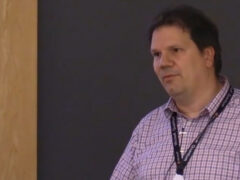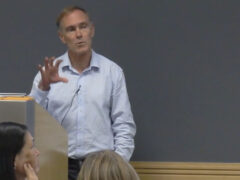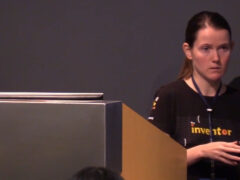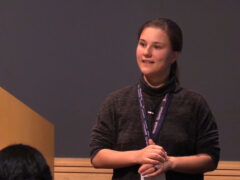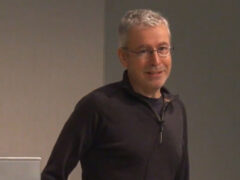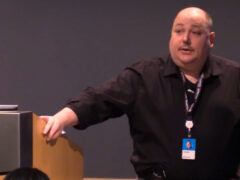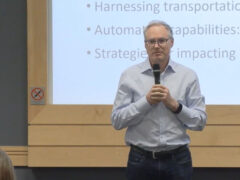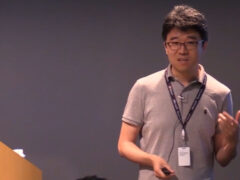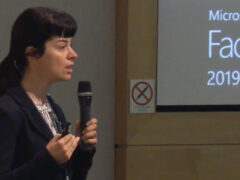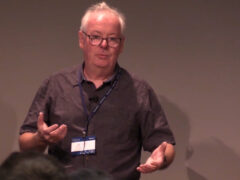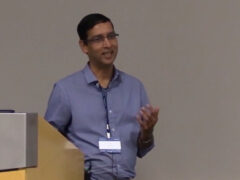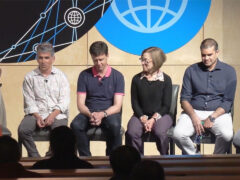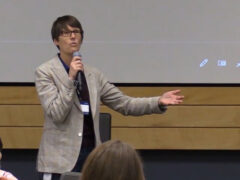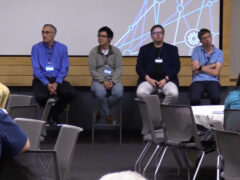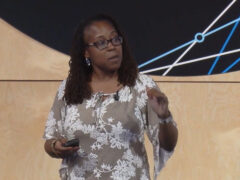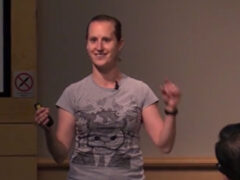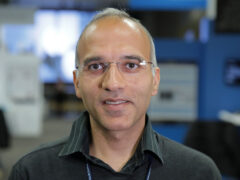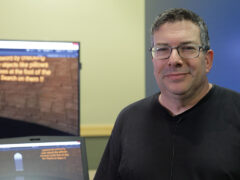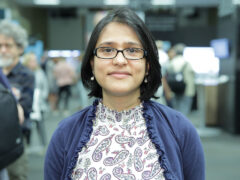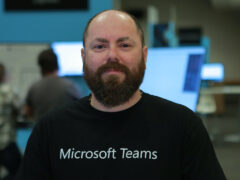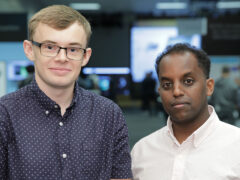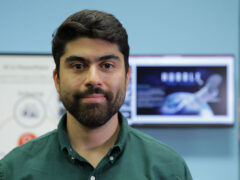Interaction for Machine Learning
- James Fogarty, Jerry Zhu, Lise Getoor, and Patrice Simard | University of Washington, University of Wisconsin, University of Maryland, MSR
- Faculty Summit 2013
The traditional role of the human operator in machine learning problems is that of a batch labeler, whose work is done before the learning even begins. However, humans can provide guidance to a learning system via a richer set of inputs and interact directly with the learning algorithm as it learns. Active research problems in this space include designing interactions for acquiring human guidance, active and life-long learning, interactive clustering, query by selection, learning to rank, and effective crowdsourcing. Addressing these problems requires contributions from multiple disciplines such as human-computer interaction, artificial intelligence, and machine learning.
This session of the 2013 Microsoft Research Faculty Summit explores how richer forms of interaction with humans could help machine learning systems, in terms of both surveying the major paradigms and sharing information about new work in this area. Through a combination of presentations and discussions, we hope to gain a better understanding of the available algorithms and best practices, of their inherent limitations, and of challenges and opportunities for future research in this space.
Speaker Details
James Fogarty is an associate professor of Computer Science & Engineering at the University of Washington and an active member of DUB, the University of Washington’s cross-campus initiative advancing research and education in Human-Computer Interaction and Design. His research broadly explores opportunities for new technology and tools in everyday interaction, often with a focus on machine learning as a tool for enabling new forms of interaction and for scaling end-user interaction to big data. He has authored multiple award papers, received a 2010 NSF CAREER award, and chaired the CHI 2012 subcommittee on “Expanding Interaction through Technology, Systems, & Tools”. He obtained his Ph.D. in Human-Computer Interaction from Carnegie Mellon University in 2006 and his B.S. in Computer Science from Virginia Tech in 2000.
Xiaojin (Jerry) Zhu is an associate professor in the Department of Computer Sciences at the University of Wisconsin-Madison. He received his B.S. and M.S. degrees in Computer Science from Shanghai Jiao Tong University in 1993 and 1996, respectively, and a Ph.D. degree in Language Technologies from Carnegie Mellon University in 2005. He was a research staff member at IBM China Research Laboratory from 1996 to 1998. Zhu received the National Science Foundation CAREER Award in 2010. His research interest is in machine learning, with applications in natural language processing, cognitive science, and social media.
Lise Getoor is an Associate Professor in the Computer Science Department at the University of Maryland, College Park and University of Maryland Institute for Advanced Computer Studies. Her research areas include machine learning, and reasoning under uncertainty; in addition she works in data management, visual analytics and social network analysis. She is well-known for work in statistical relational learning. She is a board member of the International Machine Learning Society, a former Machine Learning Journal Action Editor, Associate Editor for the ACM Transactions of Knowledge Discovery from Data, JAIR Associate Editor, and she has served on the AAAI Council. She was conference co-chair for ICML 2011, and has served on the PC of many conferences including the senior PC of AAAI, ICML, KDD, UAI and the PC of SIGMOD, VLDB, and WWW. She is a recipient of an NSF Career Award and was awarded a National Physical Sciences Consortium Fellowship. Her work has been funded by ARO, DARPA, IARPA, Google, IBM, LLNL, Microsoft, NGA, NSF, Yahoo! and others. She received her PhD from Stanford University, her MS from University of California, Berkeley, and her BS from University of California, Santa Barbara. For more information see http://www.cs.umd.edu/~getoor/
-
-
Jeff Running
-

Patrice Simard
Distinguished Engineer, Research Manager
-
-
Series: Microsoft Research Faculty Summit
-
-
-
Cars, Computing and the Future of Work: Specific topics of mutual interest
- Linda Boyle,
- Ed Doran,
- John Lee
-
-
-
Crowd, Cloud and the Future of Work: Updates from human AI computation
- Pietro Michelucci,
- Lucy Fortson,
- Franco Pestilli
-
-
Cars, Computing and the Future of Work: A UW & MSR Workshop: Welcome and Overview of Projects
- Linda Boyle,
- Ed Doran,
- Eric Horvitz
-
-
Crowd, Cloud and the Future of Work: Welcome and Updates
- Besmira Nushi,
- Ece Kamar,
- Kori Inkpen
-
Empowering People to Achieve More: How Useful a Concept is Productivity?
- Brendan Murphy,
- Yvonne Rogers,
- Steve Whittaker
-
Keynote - The Future of Work And the Power of Data
- Johannes Gehrke
-
Productivity in Software Development
- Neel Sundaresan,
- Margaret-Anne Storey,
- Prem Kumar Devanbu
-
Artificial Emotional Intelligence, Social Systems, and the Future of Collaboration
- Mary Czerwinski,
- Mark Ackerman,
- Gloria Mark
-
Workers of the World, Connect! Tech Innovations and Organizational Change for the Future of Work(ers)
- Mary Gray,
- Jamie Woodcock,
- Louise Hickman
-
Increasing AI Programmer Productivity
- Markus Weimer,
- Sarah Bird,
- Ce Zhang
-
Human-AI Collaboration for Decision-Making
- Besmira Nushi,
- Ayanna Howard,
- Jon Kleinberg
-
Future of Spreadsheeting
- Ben Zorn,
- Felienne Hermans,
- Daniel Barowy
-
Program Synthesis meets Notebooks
- Sumit Gulwani
-
Accessible Virtual Reality
- Eyal Ofek
-
Calendar.help: A Virtual Meeting Scheduling Assistant
- Pamela Bhattacharya
-
Visual Studio IntelliCode
- Mark Wilson-Thomas
-
Microsoft Teams: Collaborate with Any Researcher Anywhere
- Jethro Seghers
-
Project Alava: Programming Webs of Microcontrollers
- James Devine,
- Teddy Seyed
-
AI in PowerPoint
- Kostas Seleskerov


